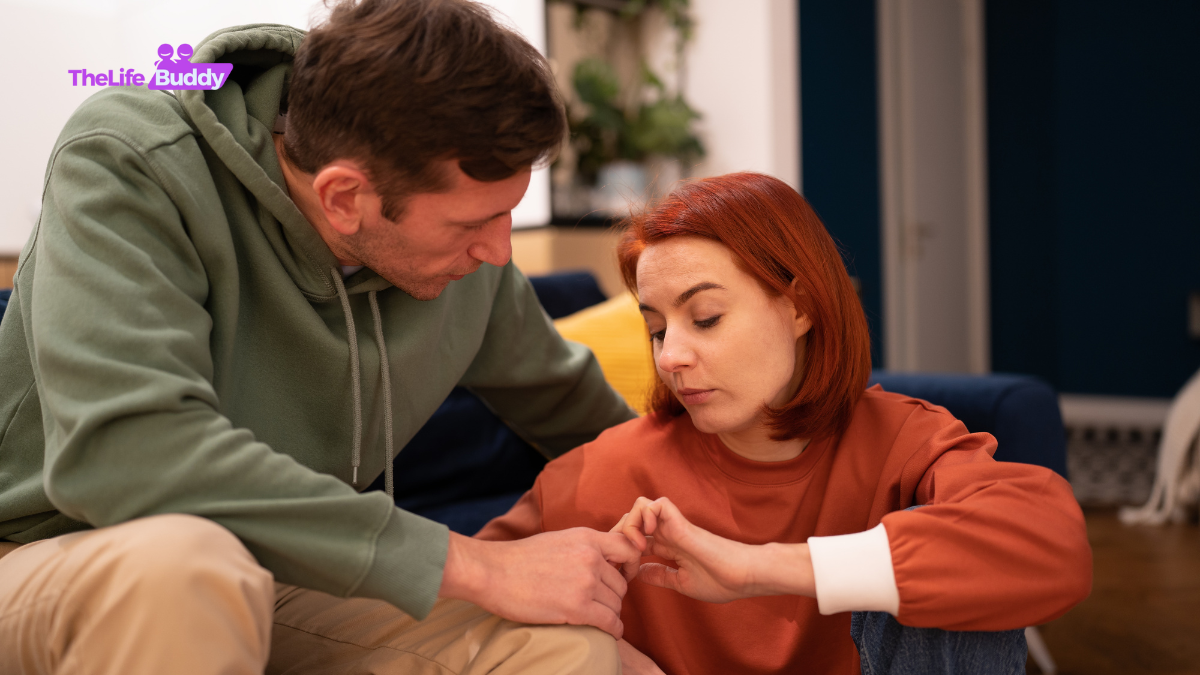15 Cheating Guilt Signs You Need to Look For

Cheating. It’s one of the most devastating experiences anyone can face in a relationship. Trust is broken, hearts are shattered, and life as you know it is turned upside down. But sometimes, the most painful part isn’t catching them in the act—it’s the nagging feeling that something isn’t right. You might not have solid evidence, but the signs are there, lurking in the shadows. This guide will help you uncover the subtle signs of cheating guilt that you need to look out for.
What is Cheater’s Guilt?
Cheater’s guilt is the emotional turmoil that an unfaithful partner experiences after being unfaithful. It's like a constant cloud hanging over them, filled with shame, remorse, and anxiety. This guilt can manifest in various ways, from sudden changes in behavior to erratic emotional outbursts. The thing about guilt is that it’s a sneaky emotion—it can seep into every aspect of a person’s life, often making them act out in ways they wouldn't normally.
Imagine carrying around a heavy backpack. Over time, the weight affects how you walk, stand, and move. Similarly, guilt weighs down a person’s conscience, altering their behavior and interactions. They might become overly attentive to mask their wrongdoing or, conversely, distant and irritable because they can't handle the pressure of their secret.
How Cheating Guilt Affects the Cheaters
Guilt is a powerful emotion. It doesn’t just affect the cheater mentally, but physically and emotionally too. Many cheaters find themselves caught in a whirlwind of conflicting emotions. On one hand, they might feel intense remorse and regret for betraying their partner. On the other, they might feel a twisted sense of relief or excitement from their illicit actions. This emotional cocktail often leads to unpredictable behavior.
Cheaters often suffer from anxiety and stress, knowing they could be discovered at any moment. This stress can manifest in physical symptoms like headaches, stomach issues, or insomnia. Emotionally, they might experience mood swings, snapping at loved ones over trivial matters, or breaking down over seemingly insignificant issues. Over time, this constant state of tension can lead to more significant mental health issues like depression.
10 Cheating Guilt Signs You Can’t Miss
- Overcompensation: If your partner suddenly becomes excessively affectionate or generous, they might be trying to cover up their guilt.
- Unexplained Absences: Regularly disappearing without a reasonable explanation could be a red flag.
- Sudden Privacy Concerns: If they start guarding their phone or computer, it might be to hide evidence of cheating.
- Mood Swings: Cheaters often experience mood swings due to the stress of hiding their infidelity.
- Changes in Routine: Any unexplained changes in their daily schedule could be a sign.
- Guilt Gifts: Unexpected and lavish gifts can sometimes be a cheater’s way of easing their conscience.
- Irritability and Defensiveness: If they become easily irritated or defensive, they might be projecting their guilt onto you.
- Avoiding Intimacy: A decrease in physical affection can indicate that they are getting their needs met elsewhere.
- Blaming You: They might start accusing you of cheating as a way to deflect their own guilt.
- Confession Clues: Sometimes, they might drop subtle hints or confessions, hoping you’ll catch on and confront them.
Why Do People Cheat in a Relationship?
Understanding why people cheat can help make sense of the baffling behavior. Infidelity is rarely about one single factor; rather, it’s a complex interplay of personal, relational, and situational elements. For some, it might stem from a lack of emotional fulfillment in their current relationship. They might feel neglected, unappreciated, or disconnected from their partner.
For others, the thrill of the forbidden can be a powerful motivator. The excitement of a secret affair can be intoxicating, offering a temporary escape from the mundane aspects of daily life. Sometimes, it’s about ego and validation—cheaters might seek out extramarital or extrarelational encounters to boost their self-esteem and feel desired.
External factors also play a role. Opportunities for cheating can arise from increased interaction with potential partners at work or social events. Stress and life transitions, such as job loss or the death of a loved one, can also push someone towards infidelity as a coping mechanism.
How to Deal with Cheating Guilt
If you’re on the receiving end of infidelity, coping with your partner’s cheating guilt can be incredibly challenging. However, it’s crucial to focus on healing and addressing the situation head-on. Here are some steps to consider:
- Open Communication: Encourage your partner to talk about their feelings and the reasons behind their actions. Understanding their perspective can help you both move forward.
- Seek Professional Help: Therapy can be beneficial for both individuals and couples dealing with the aftermath of cheating. A professional can provide tools and strategies to navigate this difficult time.
- Self-Care: Take care of your emotional and physical well-being. Engage in activities that bring you joy and help you relax.
- Set Boundaries: Establish clear boundaries to rebuild trust and ensure both partners feel secure in the relationship.
- Forgiveness: Forgiveness is a personal journey and doesn’t happen overnight. Allow yourself time to heal and consider if and when you’re ready to forgive.
Frequently Asked Questions
- Can a relationship survive cheating? Yes, a relationship can survive cheating, but it requires both partners to be committed to healing and rebuilding trust. This often involves open communication, professional counseling, and a willingness to work through the underlying issues that led to the infidelity.
- How can I rebuild trust after infidelity? Rebuilding trust takes time, patience, and consistent effort. Both partners need to be transparent and accountable. The cheater must demonstrate genuine remorse and make amends, while the betrayed partner needs to work on forgiving and moving past the hurt.
- Is emotional cheating as serious as physical cheating? Emotional cheating can be just as damaging, if not more so, than physical cheating. It involves forming a deep, intimate connection with someone outside the relationship, which can erode the emotional bond between partners.
- Why do people feel guilty after cheating? People feel guilty after cheating because they have violated the trust and commitment inherent in a relationship. This guilt arises from a sense of wrongdoing and the fear of hurting their partner and losing the relationship.
- Can guilt lead to a confession? Yes, guilt can lead to a confession. The emotional burden of cheating can become overwhelming, prompting the cheater to come clean in an attempt to relieve their conscience and seek redemption.
Cheating is a painful and complex issue that can wreak havoc on relationships. Recognizing the signs of cheating guilt is crucial for addressing the problem early on. Understanding why people cheat, how guilt affects them, and how to cope with infidelity can provide the foundation for healing and potentially rebuilding a stronger, more honest relationship. Whether you’re dealing with guilt as the cheater or the betrayed partner, remember that support, communication, and professional help can guide you through this challenging journey.


